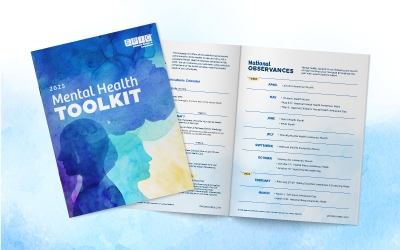See more of our COVID-19 employer resources for employee benefits and risk management on the EPIC dedicated coronavirus webpage
Viewpoints from Claire Letourneau
This summer, I look around and see a strange battle with community wellness playing out. Often misunderstood or ignored, the heart of community wellness is doing something likely to be good for you, but is definitely good for those around you. It’s debatable whether wearing a mask helps to protect you from coronavirus, but it is indisputable that it will keep those around you safer. I just had my birthday (don’t all send me cupcakes at once!) and as I blew out the candles on my cake, my wish was that everyone would wear a mask. Truly and sadly, it was my 2020 birthday wish… because I know, as was confirmed by the director of the Centers for Disease Control and Prevention (CDC), that by wearing masks we could get coronavirus under control. I’ll leave the mask conversation for now and turn to an important element of community wellness that will be on our doorstep before we know it – the need for paid sick leave.
Heading into the fall, we know that simple colds and the flu have a significant impact on employee productivity.
A study published on the National Institutes of Health website found that “productivity decreased by a mean 26.4%, and 44.5% of respondents reported work/school absenteeism (usually 1-2 days) during a cold,” and that’s time off just for a cold. Another shocking statistic from a Society for Human Resource Management (SHRM) article is that nine out of 10 employees admit going to work sick, despite warnings to stay at home.
Knowing how quickly some of these more common illnesses spread, why are employees still going in?
If you polled 100 doctors about handling flu symptoms, they’d all likely say “stay home, get fluids, rest.” Meanwhile, folks are getting their colleagues sick and reducing productivity among a large swath of the workforce – and spreading disease further through the community. Some ill employees may be getting pressure from unsympathetic managers, but it’s more likely due to limited (or no) paid sick-leave policies. So, employees have to choose between using time off to stay home sick or save it for a vacation – or worse, they have to worry about not having income.
Even now, when unemployment is skyrocketing, it might be time for us to retire the American work ethos of “work ‘til you drop.”
Companies moved quickly to change their sick-leave policies amidst stay-at-home orders for coronavirus. And now it may be important for employers to redefine these policies and establish a more thoughtful, impactful change – shifting our cultural view of employees as expendable/replaceable, to valuable assets who deserve to be cared for by their employers.
Policies that have been in vogue, such as moving from defined sick days and vacation days to paid time off (PTO), make it difficult to be away from work.
Employees want vacation, so they’re disincentivized to “waste” their PTO days at home sick. It may be easier logistically (eliminating the need for a doctor’s note) but it sends a subconscious, unhelpful message. Look at it like this: when your internet is not fully functioning, it slows down your productivity. Sure, you’re working, but if you take the time to stop, unplug the modem to reboot and get your internet back up to full strength, you can accomplish your important work much more efficiently. You don’t stop paying for the internet while it’s down, but understand the overall value of the service it provides. Yes, it’s pretty much that simple. The bottom line? Employees need to be paid when sick to stay out of the office to protect colleagues and get healthy faster, AND employees need to be paid for time off when they are well to enjoy life, family, travel, or just to recharge.
Senior leadership and decision-makers may have overlooked much of this when it was just about a cold or the flu. Now we’re seeing in the extreme what illness costs the American workforce through the lens of coronavirus.
With the madness of 2020 upon us, companies should consider making a lasting pivot from a narrow focus, based purely on getting the most out of their workers at all costs, to an expanded vision that includes the wellbeing of the humans who make them the money. As we head into the fall, while COVID-19 numbers are soaring and cold and flu season kicks off, American companies must take a long, hard look at their culture and the value of healthy, happy, productive, engaged employees.
See results from our In It Together COVID-19 pulse surveys by visiting epicbrokers.com/insights/preparing-for-the-new-normal
Related Content
Products
Employee Benefits Consulting
Our dedicated benefits team is focused on delivering better outcomes – to both your benefits program and ...
Products
Wellbeing & Health Management
Our consultants help you create a strategy around health management that will impact your culture and your ...
Products
Compliance
We provide comprehensive consulting services and in-depth education regarding the ever-changing employee ...



